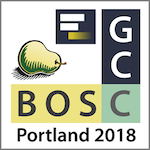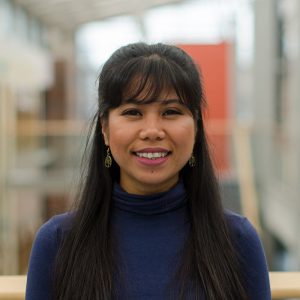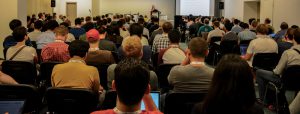The OBF Board of Directors holds a public meeting about once a year, in accordance with our bylaws. The next such meeting will take place on March 16, 2018 , at 15:00 UTC (11am EDT / 8am PDT / 16:00 CET). The meeting agenda can be found at /wiki/Minutes:2018_Mar_ConfCall. At this public Board meeting, we will consider two new candidates running for Board seats: Bastian Greshake Tzovaras and Yo Yehudi.
Home on Open Bioinformatics Foundation
The Open Bioinformatics Foundation has been accepted as a mentoring organisation for the 2018 instance of the Google Summer of Code. OBF is acting as an umbrella for ten bioinformatics Open Source projects, making it possible to offer a very diverse set of student projects. Are you a student and interested in applying for any of the projects? The student application period is open from March 12th through 27th from the official GSoC website.

We are pleased to announce that abstract submission and early registration for GCCBOSC2018 are now open. This event brings our annual Bioinformatics Open Source Conference and the Galaxy Community Conference together into a unified week-long event.

This blog post is syndicated from a post on Arun Decano’s blog, originally published Feb 1, 2018. Arun was supported by the ongoing OBF travel fellowship program to attend a Galaxy Admin Workshop held in Oslo, Norway Jan 7-14, 2018. The OBF’s Travel Fellowship program continues to help open source bioinformatics software developers with funding to attend conferences, workshops, or training events.

Arun Decano is a PhD research fellow in the Infection Genomics Group at Dublin City University in Dublin, Ireland. Her research, with advisor Dr. Tim Downing, focuses on the phylogenomic study of a multidrug-resistant bacterial population and aims to develop novel infection control strategies using whole genome sequence data.
The OBF’s self-hosted mailman server is still struggling right now, so we are looking at migrating the active mailing lists to paid hosting, and as part of this consolidating down to ideally about a dozen mailing lists. Currently we have a lot of mailing lists, but many are dormant or redundant. Some were announcement specific, where nowadays blogs and Twitter work quite well.
The Open Bioinformatics Foundation travel fellowship program was launched in 2016 to help increase diverse participation at events promoting open source bioinformatics software development and open science in the biological research community. There are four application deadlines per year;

This is a guest blog post from Farah Zaib Khan, who was supported by the ongoing Open Bioinformatics Foundation travel fellowship program to attend our annual conference BOSC 2017 and its preceding Codefest in Prague, July 2017. The OBF’s Travel Fellowship program continues to help open source bioinformatics software developers with funding to attend conferences or workshops.
TL;DR: The OBF isn’t doing enough in public policy and advocacy around Open Science, and we are looking to recruit a new board member who is interested in this role. Is that you? If yes, then contact us. At our October meeting, the OBF board took some time to think broadly about the OBF, current and future.
This time of year we’d normally be having a public board meeting as part of our commitment to communication with our member projects and the wider OBF community. As per our bylaws we notify the community at least 10 days in advance, and we’d also handle election of new board members and leadership changes where appropriate. For a couple of reasons, we’re going to postpone that until early 2018.

BOSC 2017 ( /wiki/BOSC_2017) was held in Prague in July 2017 as part of the annual ISMB conference. Nearly 250 people, half of whom were first-time attendees, participated in the meeting.